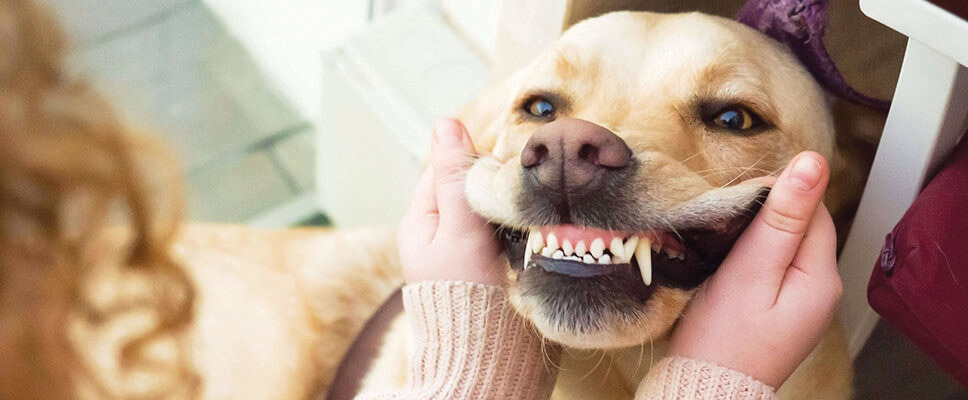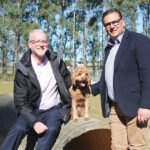By Kellie Tickner, Orchard Hills Veterinary Hospital Administrator
JUST like human babies, puppies are born with no teeth. Their first set of baby teeth, or milk teeth, grow in between 3-4 weeks of age. When your puppy is around 4-5 months old, these teeth will fall out to make room for their permanent set of adult teeth. By 5-7 months, all the adult teeth will be present. It is important to note this can vary depending on the breed.
This means that puppies experience teething twice, once for their milk teeth and again with their adult teeth. While teething is generally not a painful process for your puppy, they may experience some discomfort in their jaw at this time. The best way to help them alleviate this is to provide your puppy with specifically-designed soft chew toys. This will also prevent unwanted chewing of other objects around the house.
Signs your puppy is teething
• red, inflamed gums
• drooling and offensive breath
• increased chewing behaviour – chewing is the most obvious sign that your puppy is teething and you can help them by providing them with safe toys and discouraging biting
• bleeding gums – a small amount of bleeding from the gums is normal and you may find specks of blood on your puppy’s favourite chew toys
• missing teeth – you may find these on the floor but it is also common and safe for your puppy to swallow these as they fall out
• decreased appetite – puppies may eat slower or less as it causes them discomfort
When is it necessary to see the vet?
While teething often involves some bleeding from the gums as your puppy’s sharp teeth emerge, if you notice a large amount of blood, immediately seek professional assistance from your vet. Before all your puppy’s adult teeth have grown in, you should book them in for a dental appointment for a precautionary checkup.
What to expect at the dental checkup
We will check your puppy for:
• crooked teeth – this can be caused by two teeth coming in at one spot, or if a baby tooth has not fallen out when the adult tooth is emerging.
• jaw misalignment – for some breeds with short muzzles, a slight underbite is normal However, if your puppy is showing signs of a strong underbite or overbite, intervention may be required to correct chewing and eating issues in the future.
• bad breath – this is not normal in dogs and may indicate that your puppy has a low-grade infection
• broken or cracked teeth – if a tooth has broken below the gum line and the nerve is exposed, your puppy will be in discomfort and may develop an infection
• tartar build up – while tartar build up is uncommon in puppies, it occasionally does happen.
It is a good idea to implement a dental routine while your puppy is young to avoid dental diseases in the future. For more information, phone the team at Orchard Hills Veterinary Hospital on (02) 4736 2027.






